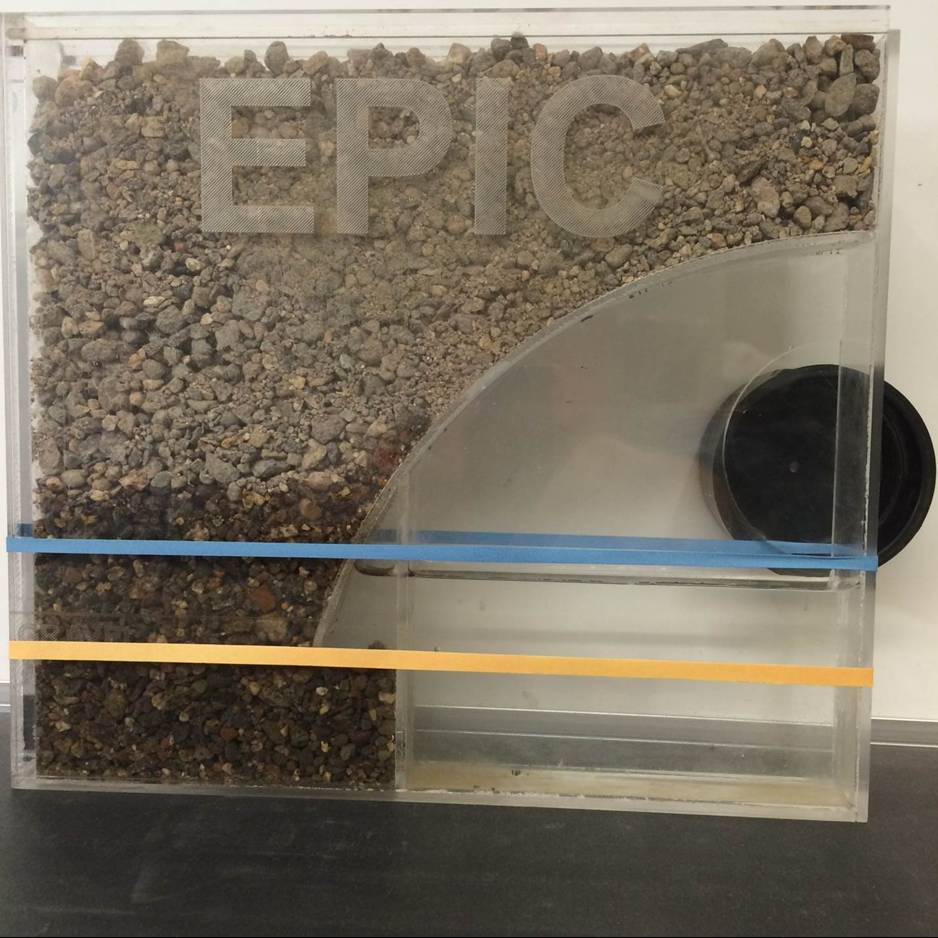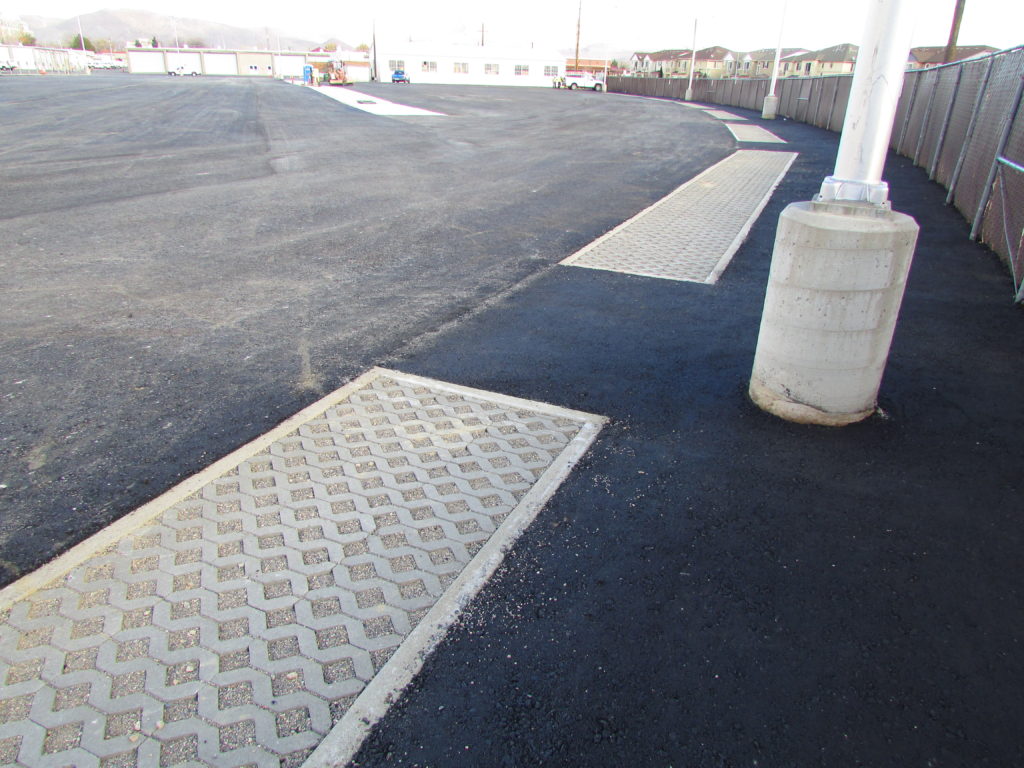EPIC filter melts snow
This year’s winter season, as of February 2019, already has yielded 250″-300″ of snow in the Sierra Mountains near Lake Tahoe. Piles of snow in parking lots and along driveways are a normal site. EPIC filter pads can waft ambient air through the EPIC gravel profile underneath a surface storm grate, PICP or porous concrete. Snow piles can be strategically placed over these EPIC filter pads moving warmer air to encourage more efficient snowmelt, while simultaneously filtering the storm water.
The shape of the offset holes along the sides of the Environmental Passive Integrated Conveyance (EPIC) create a natural oil / water separator. The modified perforated pipe releases water by gravity at an elevation that discourages hydrocarbons (oils / grease) from entering the conveyance. The hydrocarbons instead are trapped in the gravel layer to later be broken down by microbiological degradation; a natural process of micro organisms eating the oils / grease as a food source.

Contaminants filtered from watershed
Other contaminants such as brake dust, tire bits, sediment and small trash are captured at the surface and easily cleaned by vacuum equipped street sweeping equipment. This creates a maintenance ease that saves time and effort compared to conventional stormwater management practices.
Nevada Department of Transportation (NDOT) installed EPIC filter strips in 2015. Although the air circulation feature is not yet utilized at NDOT, their Carson City HQ maintenance yard stores their snow piles over the EPIC system with confidence the runoff from their site is filtered and clean. The EPIC filter pads are cleaned by street sweepers after the snow melts. Then the runoff is filtered through the PICP filled with gravel over the EPIC chambers.

Additional Storage Possibilities
EPIC Filter Intercepts can also provide an opportunity for subsurface storage of snow melt for many future uses. For one, ski resorts can reuse it when making snow. In the summer, it can be used to irrigate landscapes of all kinds. In the west, having reservoirs available for on-demand wildfire suppression will be key. There’s also linear agriculture and indoor reuse, while filtered run off and slow release work to increase hydro-logical responsibility.


